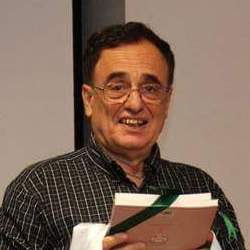The Four Noble Truths
with Georges Dreyfus
Georges Dreyfus will teach on the Buddha’s first and most essential teaching. The whole of Buddhist philosophy and the entire path to enlightenment can be found in the Four Noble Truths Sutra, also known as “Setting in Motion the Wheel of the Dhamma”:
1. Life is characterized by suffering.
2. The cause of suffering is ignorance.
3. The cessation of suffering is attainable.
4. There is a path to the cessation of suffering.
By listening to teachings on this text, we will become familiar with the three phases of engaging with these truths: knowing the nature of the truth, knowing what needs to be done in connection with that truth, and finally, accomplishing what needs to be done. This foundational teaching is always relevant, no matter where you are on your spiritual journey!
Additional Materials
Recordings
This is a playlist. To jump to a particular session, click the playlist icon (near the top-right corner) of the video frame to select video.
About the Teacher
 Georges Dreyfus left his native Switzerland for India in 1970, and soon began studying with Ven. Geshe Rabten, the great scholar-yogin whom H.H. the Dalai Lama had invited to teach the growing number of westerners arriving in Dharamsala. Within one year he took monastic ordination and embarked on the demanding training programme for the degree of Geshe (broadly equivalent to the Western ‘Doctor in Divinity’). As well as studying at the Buddhist School of Dialectics in Dharamsala, he also studied at all three of the great Geluk monasteries of Ganden, Sera and Drepung re-established in India.
Georges Dreyfus left his native Switzerland for India in 1970, and soon began studying with Ven. Geshe Rabten, the great scholar-yogin whom H.H. the Dalai Lama had invited to teach the growing number of westerners arriving in Dharamsala. Within one year he took monastic ordination and embarked on the demanding training programme for the degree of Geshe (broadly equivalent to the Western ‘Doctor in Divinity’). As well as studying at the Buddhist School of Dialectics in Dharamsala, he also studied at all three of the great Geluk monasteries of Ganden, Sera and Drepung re-established in India.
During the fifteen years that his training lasted, Dreyfus studied the great treatises of the Indian Buddhist tradition in the light of their Tibetan commentaries. In 1985 he was awarded the degree of Lharampa Geshe, the highest academic qualification in the Geluk system – the first western student to be so honoured. He subsequently completed both M.A. and Ph.D degrees at the University of Virginia under Prof. Jeffrey Hopkins.
Very much inspired by the spirit of non-sectarianism, Dreyfus has studied extensively outside of the Geluk school where he received his basic training. He studied and practiced Theravada meditation techniques with Munindra and other qualified teachers. He also studied logic and epistemology as well as Madhyamaka philosophy with the Sagya Khenpo Migmar Tsering. He received teachings from both Dilgo Khyentse Rinpoche and Tulku Urgyen, and further studied Madhyamaka and some of the most important texts on Vajrayana practice within the Nyingma tradition with Khenpo Namdrol.
Georges Dreyfus is now the Jackson Professor of Religion at Williams College (MA) U.S.A where he has been teaching courses on Tibetan and Thai Buddhism, Indian philosophy, meditation and cognitive science, religion and science. One of his main areas of interest is the study of consciousness, an interest that he has developed through an association with the Mind and Life Institute. He has furthered this interest through teaching courses such as his “Mind and Persons in Indian Thought,” a course that focuses on Buddhist and Hindu views of the mind and the self, and “The Embodied Mind: Meditative Practices, Mind Sciences and the Philosophy of Mind.” This course brings together cognitive science, phenomenology and Buddhist ideas and practices.


